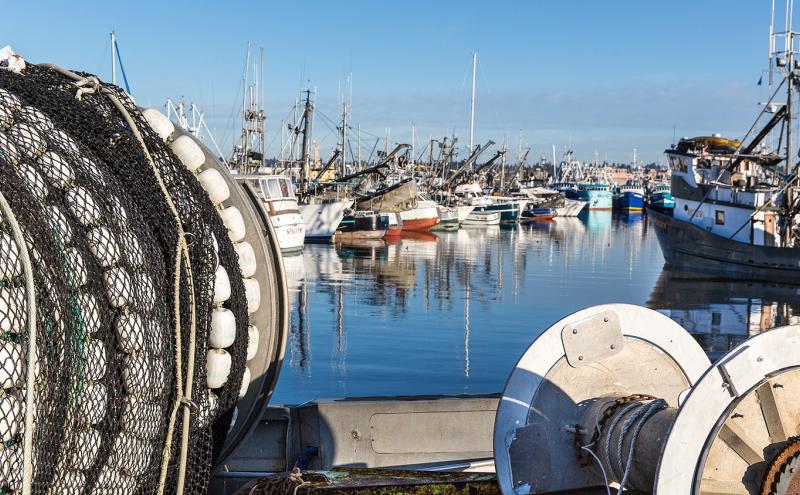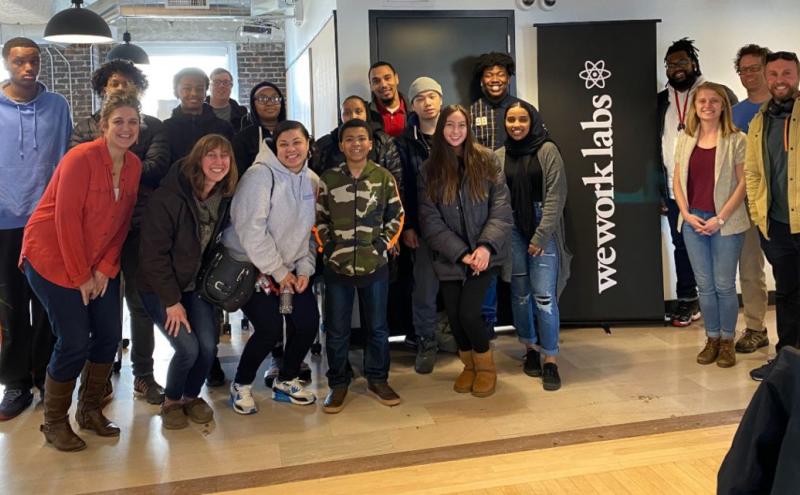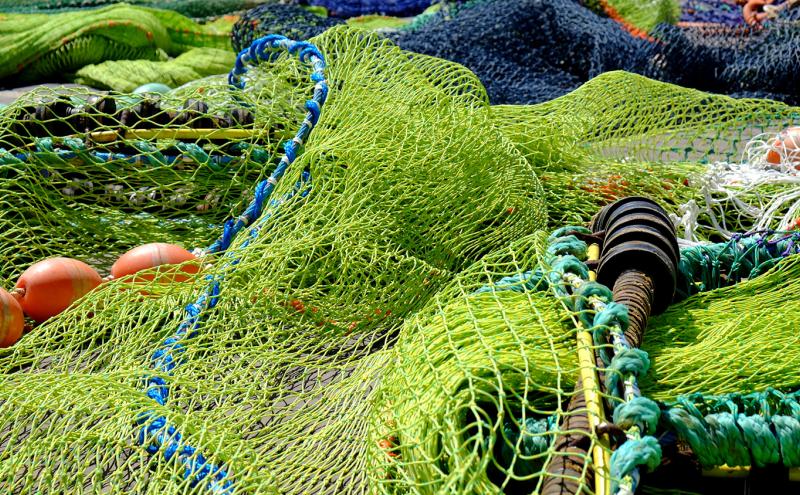
Washington Maritime Blue, the Port of Seattle, and WeWork Labs have partnered to launch Washington’s first maritime accelerator to help maritime companies innovate and grow. New ideas in one of the most traditional sectors in Washington are critical for a thriving economy and to protect our planet, precious natural resources, and ocean life.
This series showcases the 11 companies participating in the inaugural cohort. These companies worked for four months out of WeWork Labs’ Seattle location with mentors and advisers to help navigate challenges. In April, the startups shared their innovative solutions in a Virtual Showcase.
Net Your Problem
Net Your Problem provides fishers with a way to recycle old fishing nets. The collected gear is upcycled into raw plastic that’s transformed into a variety of products like kayaks, bathing suits, carpets, and office furniture. Founder Nicole Baker introduced gear recycling to fishers at two Alaskan ports in 2017, and is expanding and developing gear recycling programs throughout Alaska and in the rest of the United States. Today, Baker works from Seattle, where she and two employees manage the logistics of net collection, loading containers, and shipping remotely. We sat down with Baker to chat about how Net Your Problem got started, her experience in the Maritime Accelerator program, and what’s next.
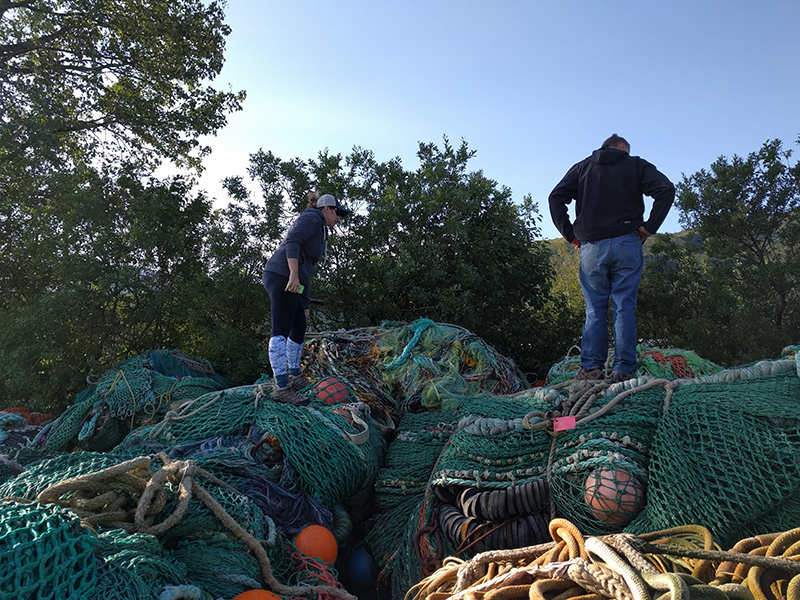
Tell me about Net Your Problem and how it got started.
I used to be a fisheries observer, which is a scientist that goes out on commercial fishing vessels. I monitored what fishing vessels were catching and where they were catching it. From 2010 to 2015 I was assigned to vessels based out of Dutch Harbor and Kodiak, Alaska. I read an article about Adidas partnering with a nonprofit to make a prototype sneaker out of old fishing gear, and when I saw the piles of fishing nets everywhere, it made me think about recycling fishing gear into other products. Turning the idea into a business took a little while. To start, I figured out where I could send the material to be recycled and collected the first load of fishing gear with the support of a non-profit. After that, I realized that I really needed to set up a business to make it sustainable and repeatable every year. Net Your Problem offers a recycling service to fishers.
What are some of the challenges you’ve had to overcome along the way?
In addition to owning a business, I still have a full-time job, so I have to balance between the things I want to do and what I can realistically accomplish with the time I have. Earlier challenges I faced included learning the ropes about ocean freight and shipping imports and exports. I had to figure out how to communicate the rationale of why I wanted people to recycle. I was already passionate about recycling since I come from an environmental background, but I needed to learn how to convince people they should participate when they have alternative methods of gear disposal. The challenge is convincing fishers that paying to have their fishing gear recycled is a good decision not only for the environment, but also for their business.
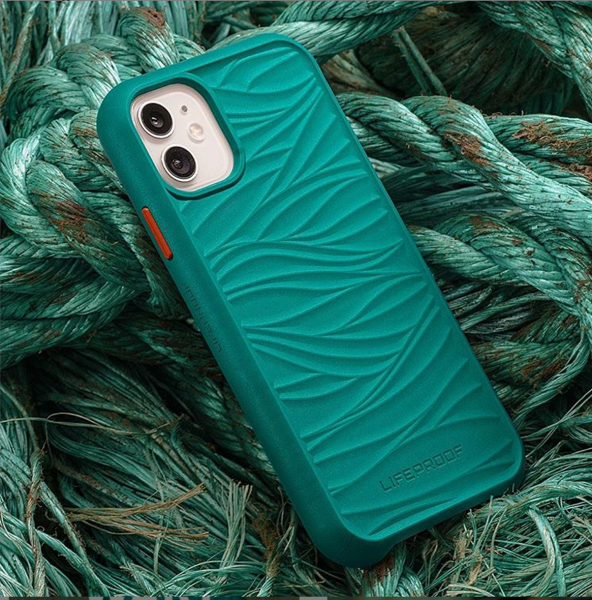
What were your goals when you applied for the Maritime Blue Accelerator program?
My expectation was to get a mini Master of Business Administration (MBA). I have a Master’s degree in Marine Biology, but I was never formally trained in business principles theory or practices. I’ve been operating for almost three years with no business plan so I was looking for some introductory business lessons.
Why is bringing Seattle's start up culture and entrepreneurial spirit into the maritime industry so important?
I think the same general principles apply to any startup regardless of your business focus and you can learn a lot from other companies in other industries. For example, in one session in the Accelerator program, we learned how to build a roadmap for a software program. If I want to go and build a roadmap for recycling, the details of my roadmap would obviously be different, but the structure is similar. We often have conversations about growth strategies, and I talked with others about how to sell recycling when landfills often let you drop things off for free. A WeWork advisor gave me the idea to focus my business on areas with high landfill costs, so I started looking at fishing towns where landfills are really expensive.
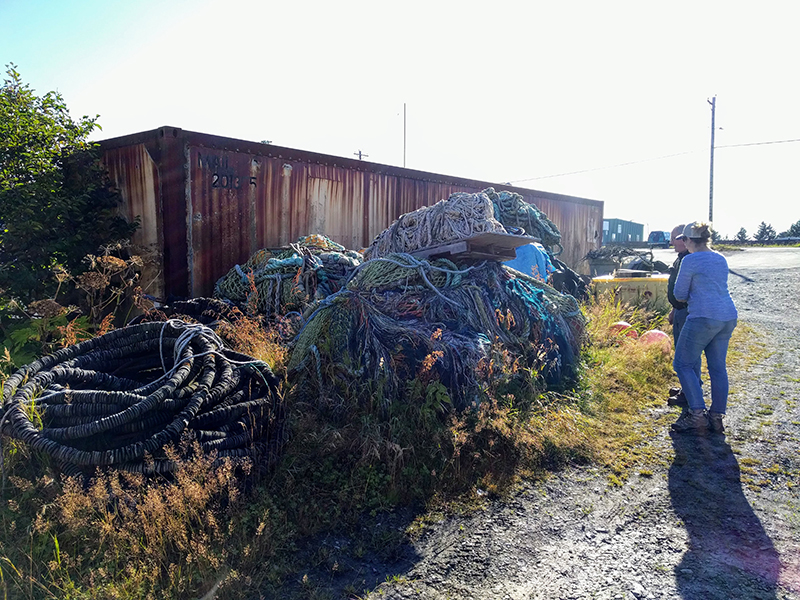
What was most beneficial about your experience with the Maritime Accelerator?
Meeting and collaborating with other maritime companies in a small industry; many startups have the same customers even though our products and services are different. The Accelerator also helped me re-frame my thinking. I entered the Accelerator as a marine biologist trying to do something good for the environment and muddling along as a businesswoman trying to make that happen. As a result of this program, I now have goals, a growth strategy, a value proposition, and know how to digitally market that to highlight my competitive advantage. It’s helped me transform my thinking and shape this business into something I am really proud of. I hope the Accelerator program gives people who don’t have business skills the chance to flesh out their ideas.
What comes next for Net Your Problem?
I’m working on developing recycling markets in fishing ports outside of Alaska. The economics of fisheries is very different in every port, and what worked for us in the beginning is not a carbon copy to replicate in each new port. There are different incentives and advantages. My plan is to form a group of stakeholders, be creative about who’s involved, and ask that the full costs of recycling are taken on by this group, rather than just one stakeholder.
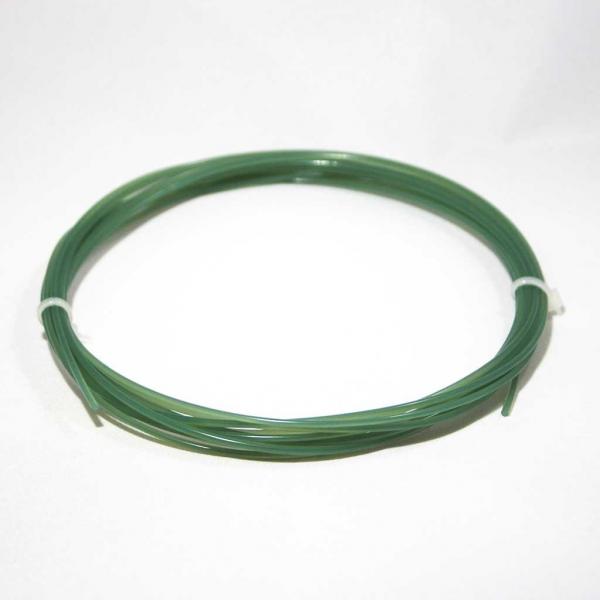
What was the most important takeaway from your time in the program?
The most important thing I learned was the need to make a business case for recycling. I started out hoping that everyone would do the right thing because it’s the right thing to do. But I learned that I need to give some more benefits and communicate other positives rather than hoping people will understand why it is important. I’m hoping to connect with what we call “unlikely partners” which could include sustainable brands, communications and outreach, logistics companies, and other partners within the maritime industry. I’d encourage them to contact us to get involved and contribute if they like our mission and what we are doing.
Read more about other Maritime Accelerator startups:
*Image Credit: Net Your Problem and Plato F from Creative Commons.

